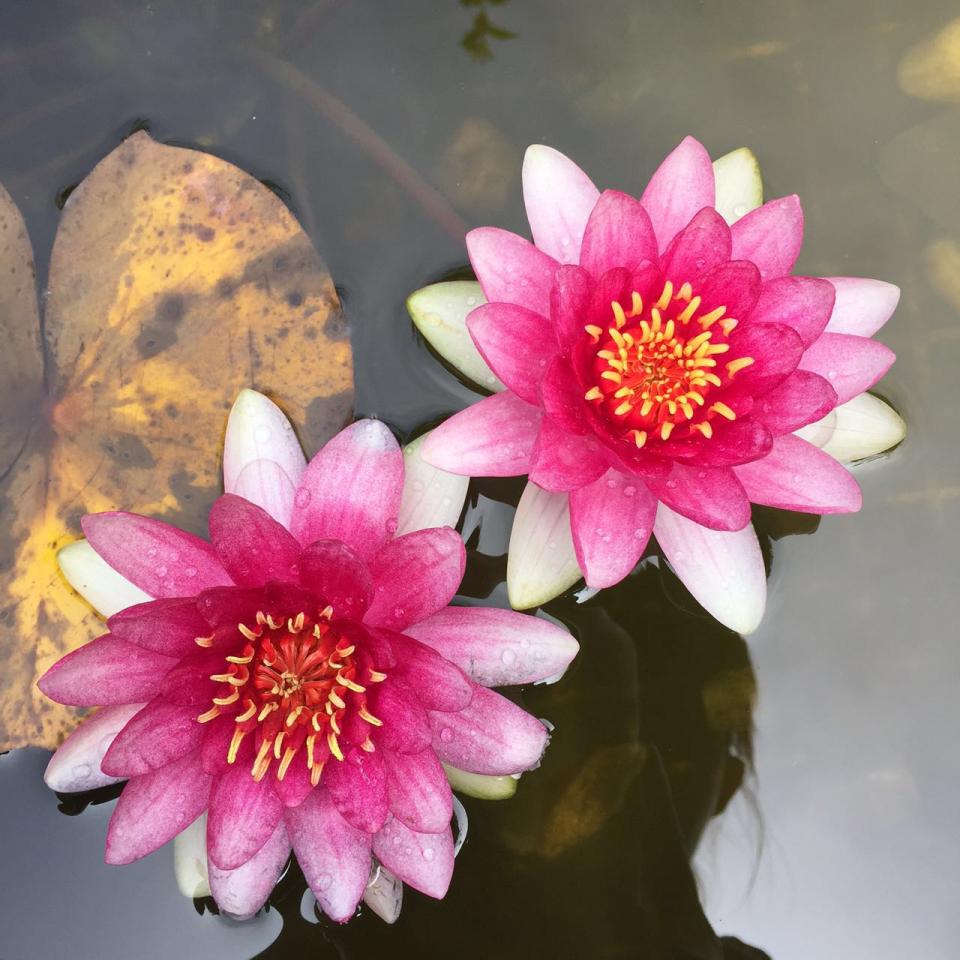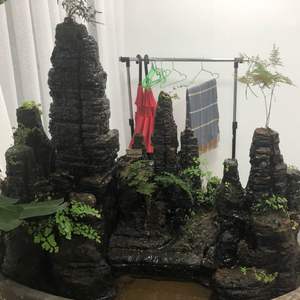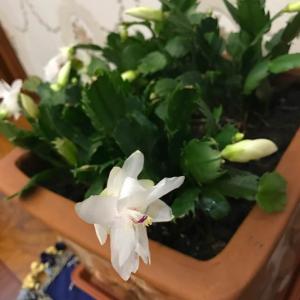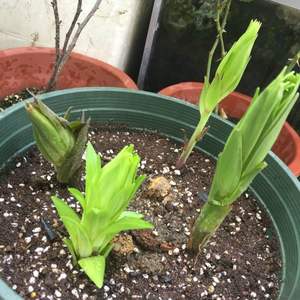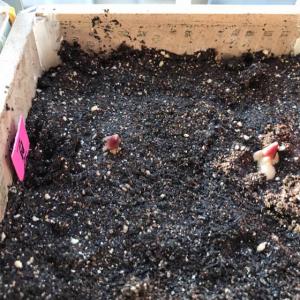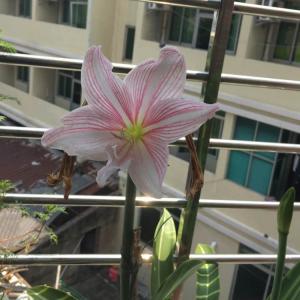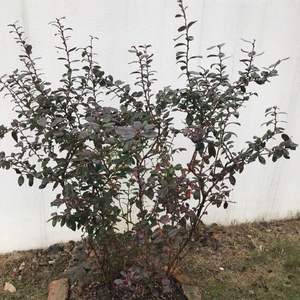
The Importance of Networking
In today's highly competitive job market, networking is an essential part of building a successful career. The ability to build and maintain strong professional relationships can help individuals to advance in their careers, find new opportunities, and stay up-to-date with the latest industry trends and developments. Networking is not just about making connections, it's about building relationships. It involves creating a network of contacts who can provide support, advice, and referrals when needed. These relationships can be beneficial for individuals at all stages of their career, from entry-level positions to senior management roles.Networking Strategies
Networking is a skill that can be learned and developed over time. Here are some strategies to help individuals build their network and establish strong professional relationships:1. Attend Networking Events
Attending networking events is a great way to meet new people and expand your network. These events can include industry conferences, trade shows, and networking groups. When attending networking events, it's important to be prepared with business cards, an elevator pitch, and a clear idea of what you hope to achieve from the event.2. Use Social Media
Social media platforms like LinkedIn and Twitter can be powerful tools for networking. By creating a professional profile and engaging with others in your industry, you can build relationships and stay connected with industry news and trends. When using social media for networking, it's important to be professional, engage in meaningful conversations, and share relevant content.3. Join Professional Organizations
Joining professional organizations is a great way to meet others in your industry and stay up-to-date with industry news and developments. These organizations can include trade associations, industry groups, and local business associations. When joining a professional organization, it's important to actively participate in meetings and events, and to take on leadership roles when possible.4. Volunteer
Volunteering can be a great way to meet new people, gain new skills, and build your network. By volunteering for industry events or community organizations, you can meet others who share your interests and passions. When volunteering, it's important to be reliable, enthusiastic, and professional.5. Follow Up
Following up with new contacts is an essential part of networking. After meeting someone new, be sure to send a follow-up email or message thanking them for their time and expressing your interest in staying in touch. It's also important to stay in touch with existing contacts by periodically reaching out to check in and see how they're doing.Building Professional Relationships
Building strong professional relationships is an important part of networking. Here are some tips for establishing and maintaining strong professional relationships:1. Be Authentic
Authenticity is key when building professional relationships. Be yourself, be honest, and show a genuine interest in others. People can sense when someone is not being genuine, and this can damage relationships in the long run.2. Listen
Listening is a critical skill for building strong professional relationships. Take the time to listen to others and show a genuine interest in their perspectives and opinions. This can help to establish trust and rapport, and can lead to more meaningful and productive relationships.3. Offer Value
Offering value to others is an important part of building professional relationships. This can include sharing information, offering advice or support, or making introductions to others in your network. By offering value, you can establish yourself as a valuable resource and build a reputation as a helpful and supportive colleague.4. Be Reliable
Being reliable is essential for building strong professional relationships. Follow through on your commitments, meet deadlines, and be responsive to others' needs. This can help to establish trust and credibility, and can lead to more opportunities and stronger relationships in the future.5. Nurture Relationships
Building professional relationships takes time and effort. It's important to stay in touch with your network, whether it's through social media, email, or in-person meetings. Take the time to check in with others, offer congratulations on milestones and accomplishments, and be supportive during difficult times.Conclusion
Networking and building professional relationships are essential skills for success in today's job market. By attending networking events, using social media, joining professional organizations, volunteering, and following up with new contacts, individuals can expand their network and build valuable relationships. By being authentic, listening, offering value, being reliable, and nurturing relationships, individuals can establish and maintain strong professional relationships that can benefit them throughout their career.
Interviews are an essential part of the job search process, and they can be nerve-wracking for even the most confident of candidates. However, with proper preparation and some essential skills, you can boost your chances of acing your next interview and landing your dream job. In this article, we’ll cover the key elements of interview preparation and the essential skills you need to impress your interviewer.
Interview Preparation
Preparing for an interview can be a time-consuming process, but it is essential if you want to make a good impression. Here are some key steps you should take to prepare for your interview:
Research the Company
Before you go to the interview, research the company and learn as much as you can about its history, products or services, culture, and mission. This information will help you to tailor your responses to fit the company’s needs and show your interviewer that you are genuinely interested in working for the company.
Review the Job Description
Carefully review the job description and make a list of the skills and qualifications required for the position. This list will help you to prepare for common interview questions, such as “Why do you think you are the best fit for this position?” or “What experience do you have that makes you a good candidate for this job?”
Practice Your Responses
Practice your responses to common interview questions with a friend or family member. This practice will help you to feel more confident during the interview and ensure that you can answer questions effectively and concisely. Remember to tailor your responses to fit the job description and the company’s needs.
Prepare Questions for the Interviewer
Prepare a list of questions to ask your interviewer about the company, the position, and the hiring process. This list will show that you are interested in the job and the company and help you to make an informed decision if you receive an offer.
Essential Interview Skills
Interview skills are the qualities and attributes that make you a strong candidate during the interview process. Here are some essential skills that you should develop to ace your next interview:
Communication Skills
Effective communication is essential during an interview. You should be able to clearly and concisely express your ideas, answer questions, and provide examples of your experience and qualifications. You should also be an active listener, paying attention to the interviewer’s questions and responding appropriately.
Problem-Solving Skills
Employers look for candidates who can solve problems effectively. During the interview, be prepared to provide examples of how you have solved problems in the past. Use the STAR method (Situation, Task, Action, Result) to structure your responses and provide specific, measurable examples of your problem-solving abilities.
Adaptability
Adaptability is essential in today’s fast-paced, ever-changing work environment. During the interview, be prepared to discuss how you have adapted to new challenges or situations in the past. Show that you are open to change and can quickly adjust to new situations.
Teamwork Skills
Many jobs require teamwork, so it’s essential to show that you can work effectively with others. During the interview, be prepared to provide examples of how you have worked successfully in a team. Discuss your communication skills, your ability to work collaboratively, and how you have resolved conflicts within a team.
Leadership Skills
Even if the job doesn’t require a leadership role, it’s important to demonstrate that you have leadership skills. Employers look for candidates who can take initiative, make decisions, and guide others. During the interview, be prepared to discuss how you have demonstrated leadership in the past, whether in a formal or informal capacity.
Time Management Skills
Time management is essential in most jobs, and employers look for candidates who can manage their time effectively. During the interview, be prepared to discuss how you prioritize tasks, meet deadlines, and stay organized. Provide specific examples of how you have managed your time effectively in the past.
Conclusion
Preparing for an interview can be a daunting task, but with proper preparation and essential skills, you can impress your interviewer and increase your chances of landing the job. Remember to research the company, review the job description, practice your responses, and prepare questions for the interviewer. And don’t forget to develop essential interview skills, including communication, problem-solving, adaptability, teamwork, leadership, and time management. By taking these steps, you’ll be well on your way to acing your next interview and landing your dream job.

Improves Physical Health
One of the most obvious benefits of exercise and physical activity is the improvement of physical health. Regular physical activity can help lower the risk of numerous chronic diseases, including heart disease, stroke, and diabetes, as well as improve cardiovascular health and lung function. Additionally, physical activity can improve bone health and reduce the risk of osteoporosis.Enhances Mental Health
In addition to physical benefits, regular exercise and physical activity can have a significant impact on mental health. Exercise has been shown to reduce symptoms of depression, anxiety, and stress and improve overall mood. Physical activity can also improve cognitive function and reduce the risk of cognitive decline and dementia.Increases Energy and Stamina
If you're feeling sluggish and lacking energy, incorporating physical activity into your daily routine can help boost energy levels and improve stamina. Regular exercise can also improve your ability to perform daily tasks and increase overall physical function.Improves Sleep Quality
Exercise and physical activity can also improve sleep quality and help you get a better night's rest. Regular physical activity can help regulate sleep patterns and improve the quality of sleep, leading to more restful and rejuvenating sleep.Increases Confidence and Self-Esteem
In addition to physical and mental health benefits, exercise and physical activity can also boost confidence and self-esteem. Regular physical activity can help improve body image and increase feelings of accomplishment and satisfaction, leading to improved confidence and self-esteem.Provides Opportunities for Social Interaction
Exercise and physical activity can also provide opportunities for social interaction and connection with others. Participating in group fitness classes, playing sports, or joining a recreational league can help you build relationships, connect with others, and create a sense of community.Conclusion
The benefits of regular exercise and physical activity are numerous and far-reaching, encompassing physical, mental, and emotional well-being. Incorporating physical activity into your daily routine can improve physical health, enhance mental health, increase energy and stamina, improve sleep quality, boost confidence and self-esteem, and provide opportunities for social interaction and connection. So why wait? Start moving today and experience the power of physical activity for yourself!
1. Tokyo, Japan
As the largest city in the world and one of the most technologically advanced, Tokyo is a modern marvel that is a must-visit for anyone traveling to Asia. With a blend of traditional Japanese culture and cutting-edge technology, the city offers something for everyone. From the bustling streets of Shibuya to the serene temples of Asakusa, there is never a dull moment in Tokyo.2. Seoul, South Korea
The vibrant capital of South Korea, Seoul is a city that offers a rich cultural experience. From the bustling streets of Myeong-dong to the tranquil temples of Bukhansan National Park, Seoul offers a mix of modern and traditional attractions. Don't miss the opportunity to try the city's famous Korean cuisine, including Korean BBQ and kimchi.3. Beijing, China
As the capital of China, Beijing offers a rich history and culture, as well as some of the most iconic landmarks in the country. Visit the Great Wall of China, the Forbidden City, and the Temple of Heaven to immerse yourself in the history and culture of this ancient city. And be sure to sample the delicious Peking duck while you're there!4. Kathmandu, Nepal
Kathmandu is a city rich in culture, history, and natural beauty. Surrounded by the Himalayan mountains, this city is a hub for trekkers and adventurers, but it also offers plenty of opportunities for relaxation and cultural immersion. Visit the famous Pashupatinath Temple and explore the bustling streets of Thamel to get a taste of the local culture.5. Ho Chi Minh City, Vietnam
Previously known as Saigon, Ho Chi Minh City is a bustling metropolis that offers a unique blend of Vietnamese and French culture. Explore the colonial architecture, visit the War Remnants Museum, and sample the delicious street food to get a taste of the local culture. And be sure to take a trip to the nearby Cu Chi Tunnels to learn about the Vietnam War.6. Bangkok, Thailand
As the capital of Thailand, Bangkok is a city that truly has it all. From the iconic Wat Arun temple to the bustling streets of Chatuchak Market, Bangkok offers a unique blend of modernity and tradition. And don't miss the opportunity to sample the delicious street food, including pad Thai and mango sticky rice.7. Mumbai, India
As the financial capital of India, Mumbai is a city that offers a mix of modern and traditional attractions. From the iconic Gateway of India to the bustling streets of Crawford Market, Mumbai offers a glimpse into the rich history and culture of India. And be sure to sample the delicious street food, including vada pav and pani puri.8. Shanghai, China
Shanghai is a city that truly embodies the rapid development and modernization of China. From the futuristic skyline to the traditional streets of the Old City, Shanghaioffers a unique blend of past and present. Don't miss the opportunity to visit the famous Bund and explore the city's vibrant nightlife. And be sure to sample some of the delicious street food, including xiaolongbao and fried rice.9. Manila, Philippines
Manila is a city that offers a mix of modern and traditional attractions. From the historic Intramuros to the bustling streets of Makati, Manila is a city that will captivate visitors with its unique culture and history. Be sure to visit the famous Rizal Park and sample the delicious street food, including adobo and lechon.10. Jakarta, Indonesia
As the capital of Indonesia, Jakarta is a city that offers a mix of modern and traditional attractions. From the historic Kota Tua to the bustling streets of Jakarta, the city offers a unique blend of Indonesian culture and history. Don't miss the opportunity to visit the famous Monas and sample the delicious street food, including nasi goreng and satay. In conclusion, Asia is a vast continent that offers a rich and diverse range of experiences. From the bustling cities of Tokyo and Seoul to the ancient cities of Beijing and Kathmandu, there is something for everyone. Whether you are a history buff, foodie, or adventure seeker, these top 10 must-visit cities in Asia will surely leave a lasting impression.
Introduction
Good nutrition and healthy eating are essential for maintaining overall health and well-being. The foods we eat provide the energy and nutrients our bodies need to function properly, and can impact everything from our mood and energy levels to our risk for chronic diseases like heart disease, diabetes, and cancer.The Basics of Healthy Eating
Eat a Variety of Foods
A balanced diet should include a variety of foods from all food groups, including fruits, vegetables, whole grains, lean proteins, and healthy fats. Eating a wide range of foods ensures that you get all the vitamins, minerals, and nutrients your body needs to function at its best.Limit Processed Foods and Added Sugars
Processed foods, such as packaged snacks and junk food, are often high in added sugars, unhealthy fats, and salt. Limiting your intake of these foods can help you maintain a healthy weight, reduce your risk for chronic diseases, and improve your overall health.Choose Whole Foods
Whole foods, such as fruits, vegetables, whole grains, and lean proteins, are minimally processed and provide the body with a range of essential nutrients. Prioritizing whole foods in your diet can help you maintain a healthy weight, reduce your risk for chronic diseases, and support overall health and well-being.The Benefits of Good Nutrition
Improved Mood and Energy Levels
Eating a diet rich in whole foods and essential nutrients can help improve your mood, increase your energy levels, and promote overall well-being.Reduced Risk of Chronic Diseases
A diet that includes plenty of fruits, vegetables, whole grains, and lean proteins, and is low in processed foods and added sugars, can help reduce your risk for chronic diseases like heart disease, diabetes, and some types of cancer.Enhanced Physical Performance
Good nutrition is essential for optimal physical performance, whether you're an athlete or simply looking to maintain an active lifestyle. Eating a balanced diet that includes enough carbohydrates, protein, and healthy fats can help support muscle growth and repair, improve endurance, and enhance overall physical performance.Making Healthy Eating a Priority
Plan Your Meals
Planning your meals in advance can help you make healthy choices and ensure that you get all the nutrients your body needs. Consider using a meal planning tool, such as a recipe database or meal planning app, to help you create balanced, nutritious meals.Cook at Home
Cooking at home allows you to control the ingredients and preparation methods of your meals, and can help you avoid unhealthy ingredients and added sugars found in many processed foods.Stay Hydrated
Drinking plenty of water is essential for overall health, and can help improve your energy levels, skin health, and digestion. Aim to drink at least 8 glasses of water per day, and consider incorporating other hydrating beverages, such as herbal tea or coconut water, into your diet.Conclusion
Good nutrition and healthy eating are essential for maintaining overall health and well-being. By including a variety of foods from all food groups, limiting processed foods and added sugars, and making healthy choices, you can fuel your body with the nutrients it needs to function at its best. Regularly eating a balanced diet can also reduce your risk for chronic diseases, improve your mood and energy levels, and support overall physical performance. Making healthy eating a priority starts with planning your meals, cooking at home, and staying hydrated. By taking control of your diet and making smart food choices, you can support your health and well-being for years to come. Remember that everyone's nutritional needs are unique, and it may be helpful to consult a registered dietitian to help you create an individualized eating plan that works for you. With a little planning and effort, you can harness the power of food to fuel your body and support a happy, healthy life.
Budapest, Hungary
Budapest is a city that offers a perfect blend of history, culture, and beauty, all at a budget-friendly price. With its thermal baths, stunning architecture, and vibrant nightlife, Budapest has something to offer for every type of traveler. The city is known for its affordable food, drinks, and transportation, making it an ideal destination for budget-conscious travelers.Must-See Sights
Don't miss the chance to soak in the famous thermal baths, such as the Gellért Baths and the Széchenyi Baths, explore the Buda Castle, and stroll along the Danube riverbank.Krakow, Poland
Krakow is a city that offers a rich cultural experience at a fraction of the cost of other European cities. From the stunning Main Square and the Wawel Castle to the incredible street food and nightlife, Krakow has something for everyone. The city is also known for its affordable accommodations, making it an excellent budget-friendly destination.Must-See Sights
Be sure to visit the Main Square, stroll through the Jewish quarter of Kazimierz, and take a day trip to the nearby Auschwitz-Birkenau concentration camp.Sofia, Bulgaria
Sofia is one of Europe's most underrated budget travel destinations. With its rich history, stunning architecture, and excellent food scene, Sofia has something to offer for every type of traveler. The city is known for its affordability, making it a great choice for budget-conscious travelers.Must-See Sights
Don't miss the chance to explore the stunning Alexander Nevsky Cathedral, wander through the bustling Vitosha Boulevard, and visit the National Palace of Culture.Lisbon, Portugal
Lisbon is a city that offers a unique blend of history, culture, and stunning scenery. With its affordable food and drinks, gorgeous beaches, and charming neighborhoods, Lisbon is an excellent budget-friendly destination. The city is also known for its affordable transportation, making it easy to explore all that Lisbon has to offer.Must-See Sights
Be sure to visit the Belem Tower, explore the historic Alfama neighborhood, and take a day trip to the nearby Sintra.Tallinn, Estonia
Tallinn is a stunning medieval city that offers a unique blend of history, culture, and modernity. With its affordable food and drinks, stunning architecture, and excellent nightlife, Tallinn is an excellent budget-friendly destination. The city is also known for its affordable transportation, making it easy to explore all that Tallinn has to offer.Must-See Sights
Don't miss the chance to explore the Old Town, visit the impressive St. Olaf's Church, and wander through the charming Kadriorg Park.Conclusion
In conclusion, Europe is full of budget-friendly destinations that offer rich cultural experiences, stunning landscapes, and memorable moments. Whether you're looking for thermal baths, medieval cities, or a mix of history and modernity, Europe has something to offer for every type of traveler. So pack your bags and head out on your budget-friendly European adventure today!
1. Tailor your resume to the job:
It's important to customize your resume for each job you apply for. This means taking the time to research the company and the job requirements, and then highlighting the skills and experience that are most relevant to the role. By tailoring your resume to each job, you increase your chances of being selected for an interview.2. Keep it concise and relevant:
Your resume should be concise and focused on the most important information. Aim for a one- or two-page resume, and only include the most relevant information for the job you're applying for. This might mean leaving out older or less relevant work experience or focusing on specific achievements instead of a comprehensive job description.3. Use keywords:
Many companies use applicant tracking systems (ATS) to screen resumes before they reach a human hiring manager. These systems use keywords to determine which resumes are a good fit for the job. Be sure to research the job requirements and include relevant keywords in your resume. This could be industry-specific terms, specific skills, or qualifications.4. Highlight your achievements:
Rather than simply listing your job duties and responsibilities, focus on your achievements and what you brought to each role. For example, instead of saying "managed a team," you might say "led a team of 10 employees to achieve a 20% increase in productivity." This type of information helps to paint a picture of your skills and experience and sets you apart from other candidates.5. Use strong action verbs:
When describing your responsibilities and achievements, use strong action verbs that demonstrate your initiative and impact. For example, instead of saying "was responsible for," you might use "managed," "led," or "supervised." This type of language is more engaging and helps to showcase your skills and experience.6. Keep it visually appealing:
A visually appealing resume is more likely to be noticed by hiring managers. Use a simple, clean format and consider using bullet points and headings to make the information easier to read. You might also consider using color or a unique design element, but be sure to keep it professional.7. Proofread and edit:
Finally, be sure to proofread and edit your resume carefully before submitting it. Small errors, typos, and grammatical mistakes can detract from the overall quality of your resume and give the impression that you're not detail-oriented. In conclusion, writing and optimizing your resume is a critical step in your job search. By tailoring your resume to each job, keeping it concise and relevant, using keywords, highlighting your achievements, using strong action verbs, keeping it visually appealing, and proofreading and editing, you can create a standout resume that helps you stand out from other candidates and secure the job you want. So, take the time to craft a high-quality resume that showcases your skills and experience, and you'll be on your way to landing your dream job.
Make It Your Own
Every letter should be addressed to a particular person. In today's environment, there are several ways to learn the names of hiring managers or recruiters. If everything else fails, contact the company's receptionist and request it. A letter addressed to Dear Sir/Madame may simply be discarded. Having their name at the top will at the very least cause them to stop, which may be enough to capture their attention and lead them to read the remainder of the message.Make Your Cover Letter Specific
Hiring managers read hundreds of cover letters each year and can quickly spot unoriginal ones. Each cover letter should be tailored to the organization. Conduct some research on the firm you're interested in and provide some information about current activity. They are searching for particular talents as well as how you believe those skills will fit into what they want. If you only make generic generalizations about how organizations today need what you have to offer, your cover letter and CV are more likely to be pushed to the side and never fully evaluated.Showcase a Few Skills That are Relevant to the Job Description
Don't go into detail about every ability you have. They are looking for abilities that fit their employment needs. Demonstrate how your specialized expertise may benefit the firm. Those should be the most significant abilities to you and the organization, and you can always discuss your other skills during the interview.Cover Letters Help You Stand Out
When hiring managers and recruiters must filter through hundreds of applicants for each given job vacancy, it is challenging to stand out. Your cover letter allows you to fill up any holes in your resume, such as work gaps, transitions, accomplishments, or anything else. Instead of being a complement to your CV, your cover letter should be an extension of it, telling your prospective employer your whole professional narrative.Don't Rewrite Your CV
Your cover letter should not be a shortened version of your CV. Don't make the mistake of believing you can just rewrite it. Your resume is already in the hands of hiring managers. Take advantage of the chance to show your awareness of the company's demands and promptly follow up with how you can satisfy those needs. Your cover letter wording does not have to be as official as your resume, but it should not be as casual as your LinkedIn page.Display Your True Self
Make the most of your chance to express yourself. While having the correct talents is important, organizations also want someone who will fit in with the corporate culture. Writing in a genuine tone will reveal your actual self and assist an employer in determining if you would be a suitable match for the team. If you don't seem to fit in well, you'll save time by avoiding going to an interview or being hired just to discover you don't get along with your colleagues.In Your Cover Letter, Sell Yourself
You have the right to speak anything you want about yourself, so don't hold back. Tell them what you have to give, why you are the ideal match for the job, and what your short- and long-term objectives are. But bear in mind that this is a one-page letter, so keep it brief. Make your message clear, with the objective of impressing the HR manager enough to want to meet with you in person.Use Spellcheck Sparingly
When the letter is "completed," the editing process begins. It's tempting to just click the spellcheck button and be done with it. That is an error. It may detect certain misspellings, but others will pass through. Human resource managers and recruiters have been known to reject letters based only on a typographical mistake.Allow a Friend to Read It
When you're juggling many parts of your job hunt while also attempting to manage your personal life, it's easy to miss mistakes. It is vital to use proper language and spelling in everything. Careless errors reflect poorly on you and may soon disqualify you from the job, regardless of how innocuous the blunder is. Request that a friend looks over the letter to ensure that no words have been left out and that it is clear. It simply takes a few minutes and might be the difference between an interview and not. Cover letters have never been more crucial, and writing the right one can help your job search.
1. Visit Rome, the heart of the Roman Empire
Choosing how to spend your time in the Italian capital is a cultural quandary. Rome was the former caput mundi (global capital), the hub of the Roman Empire, the spiritual headquarters of the Christian world, and the repository of almost two millennia of European art and architecture. The city oozes must-see attractions from every pore. One alternative is to zoom about Italy's Eternal City on the back of a Vespa scooter, which is a terrific way to experience the dolce vita. There's history and culture at every turn, from the Colosseum (purchase a "Full Experience" ticket to explore the subterranean vaults) to the Pantheon and the Roman Forum to Michelangelo's Sistine Chapel and the Vatican Museums. To assure a future visit to this enthralling city, drop a penny into the pool under the wild horses and cascading rockfalls of the Trevi Fountain before you depart.2. Visit the Valle d'Aosta ski slopes and hiking routes
The Aosta Valley, surrounded by some of Europe's highest peaks, including Mont Blanc, the Matterhorn, Monte Rosa, and Gran Paradiso, has some of the greatest winter sports facilities on the continent. Winter skiers descend hair-raising courses into France and Switzerland from trendy Courmayeur, passing glaciers and returning by soaring cable cars. When the snow melts, there are beautiful hiking paths in the Parco Nazionale del Gran Paradiso and surrounding Mont Blanc to be discovered. Whatever the season, keep an ear out for Franco-Provençal (also known as Valdôtain), the peculiar native language of the Franco-Italian valley.3. Take in the drama and thrill of Naples' nightlife
This highly charged, captivating city in Italy's deep south is a unique mix of nail-biting history, classical art, and a grungy grassroots concoction of frescoed ruins, frantic marketplaces, and epicurean experiences. In raucous Napoli, where street life plays like a great opera, drama is the rule of the day. Shop for swordfish heads and delicious ricotta pastries at Naples' oldest market, appreciate street art in the Centro Storico, take in views of Mt Vesuvius from the Lungomare seashore, and then join the after-dark passegiatta (promenade) on Via Chiaia. You can bank on drama 24 hours a day, seven days a week.4. Take in Sicily's ageless beauty
Sicily, the perennial crossroads of the Mediterranean dazzles with its stunning range of landscapes and cultural riches. Syracuse, located in the southeast, was the greatest city in the ancient world, larger even than Athens and Corinth, and played an important part in classical Greece. Its mesmerizing ancient ruins rise from lush citrus orchards and the glittering blue Mediterranean, encapsulating Sicily's eternal beauty. Planning tip: Greek tragedies, as well as modern theater and live music, continue to thrive at Syracuse's vast amphitheater. Plan to attend a performance on the antique stage at Teatro Greco under the stars - it's a memorable and enchanting experience.5. Visit artwork as part of Tuscany's ecological tourism initiative
The majority of Tuscan itineraries begin in Florence, a filmic feast of Renaissance palazzi (palaces), medieval-frescoed churches, and art museums bursting with Botticelli and Michelangelo masterpieces. The Uffizi, located in Florence's historic center, attracts millions of tourists each year because of its unparalleled Renaissance paintings. The five-year Uffizi Diffusi initiative began in 2021 to inspire art enthusiasts to venture into Tuscany's hinterland - on foot, by bike, or by automobile - following an untrodden track to Italian treasures. This sustainable tourism concept is introducing pop-up galleries to remote chapels, castles, hilltop towns, and other unexpected settings in order to alleviate Florence's enormous visitor load. It not only takes tourists off the usual path, but it also enables them to examine artworks in the Tuscan surroundings that inspired the artists: rolling hills steeped in the morning mist, ageless cypress alleyways, silver olive orchards, and terraced rows of vineyards. Check the Uffizi website for current locations.6. In Piedmont, savor leisurely food
Rare white truffles from the vine-strewn hills surrounding Alba provide the most authentic Italian dining experience. There is no turning back once these fantastic mushrooms are hunted down by dogs in the woods, ceremoniously smelled, and avidly devoured. Aside from truffles, the Piedmont area, the home of the Slow Food movement, entices gourmets with delicious, creamy hazelnuts from the rolling Langhe hills and smooth chocolate and numerous cocoa delights in gilded cafés in beautiful Turin. Nebbiolo grapes transform into beautiful Barolo and Barbaresco wines, and opulent dinners match these delectable pleasures with sacred aperitivo. Go hungry and relish the leisurely feast one delicious bite at a time!7. Travel the Via Francigena pilgrimage route
Cycling and walking are excellent ways to see Italy's varied landscapes, and there is no better long-distance track than the ancient Via Francigena. A great, less-traveled alternative to Spain's Camino de Santiago, Italy's most famous pilgrim path runs for 1900km (1180 miles) from Canterbury in England to Rome. The scenic Italian section meanders through Tuscany and Lazio at a meditative snail's pace, stopping for breath at beautiful hilltop villages, volcanic lakes, Etruscan ruins, remote monasteries, and enchanting emerald hills around Lucca, the Unesco-protected Val d'Orcia, Viterbo, and other gloriously overlooked spots.8. Get glammed up on the stunning Amalfi Coast
The Amalfi Shore is one of Italy's most attractive places, whether you explore the jagged cliff-laced coast in quest of a wild swimming spot or enjoy the high life with spritz-sipping A-listers in Positano. From searching out classic marquetry in Sorrento's maze-like old town to garden-hopping in Ravello, this spectacular coastal strip offers thrills and spills to suit every taste and budget. Make time for the Sentiero dei Dei, sometimes known as the "Path of Gods," a rocky hiking track with genuinely angelic vistas.


